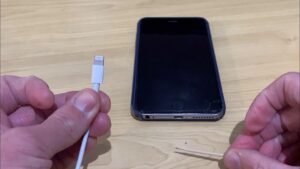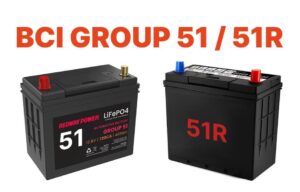Can you charge a stop/start battery with a normal charger? The answer is not as straightforward as a simple yes or no. If you’ve been wondering about this, you’ve come to the right place. In this article, we’ll delve into the details and provide you with a solution that can help you charge your stop/start battery effectively. So, let’s dive into the world of stop/start batteries and explore how you can keep them charged without any hassle.
Can You Charge a Stop/Start Battery with a Normal Charger?
Understanding Stop/Start Batteries
Stop/start batteries, also known as enhanced flooded batteries (EFB) or absorbent glass mat (AGM) batteries, are designed specifically for vehicles equipped with a start-stop system. These batteries play a crucial role in this system, which automatically shuts off the engine when the vehicle comes to a stop and restarts it when the driver wants to resume driving.
Unlike traditional batteries, stop/start batteries need to handle frequent and rapid charge and discharge cycles. They are built to provide a higher level of power and withstand the demands of a start-stop system.
The Importance of Charging Stop/Start Batteries Properly
To ensure the longevity and optimal performance of stop/start batteries, it is essential to charge them correctly. Overcharging, undercharging, or using the wrong type of charger can lead to damage and reduce the battery’s lifespan.
Using a normal charger, also known as a standard charger or a trickle charger, may not be suitable for charging stop/start batteries due to their unique characteristics and charging requirements. These batteries have different charging profiles than conventional flooded lead-acid batteries, and using a standard charger may not provide the necessary charging parameters.
Limitations of Normal Chargers
Normal chargers typically provide a constant current or voltage output, which may not be suitable for stop/start batteries. These batteries often require specific charging algorithms and voltage profiles to reach their optimal state of charge.
Charging a stop/start battery with a normal charger can lead to undercharging or overcharging, both of which can be detrimental to the battery’s health. Undercharging results in insufficient charge levels, which can lead to a shortened lifespan and reduced capacity. Overcharging, on the other hand, can cause excessive heat, lead plate corrosion, electrolyte loss, and ultimately, battery failure.
The Ideal Charger for Stop/Start Batteries
To charge stop/start batteries properly, it is advisable to use a charger specifically designed for AGM or EFB batteries. These chargers feature advanced charging algorithms and voltage profiles that match the unique requirements of these batteries.
AGM/EFB battery chargers are designed to provide a multi-stage charging process, which includes bulk charging, absorption charging, and float charging. This process ensures that the battery receives the appropriate charging current and voltage at each stage, optimizing its charge level and preventing overcharging. Some of these chargers even have built-in microprocessors that monitor and adjust the charging process according to the battery’s needs.
Using an AGM/EFB battery charger not only ensures proper charging but also helps extend the battery’s lifespan, improve its overall performance, and maintain its reliability.
Benefits of Using a Dedicated AGM/EFB Charger
Using a dedicated AGM/EFB battery charger offers several advantages over using a normal charger:
1. Accurate Charging: AGM/EFB chargers provide the precise charging parameters needed for stop/start batteries, ensuring accurate and efficient charging every time.
2. Extended Battery Life: Proper charging with an AGM/EFB charger helps prevent undercharging and overcharging, which can significantly extend the life of the battery.
3. Faster Charging: AGM/EFB chargers are designed to deliver higher charging currents, enabling faster charging times compared to normal chargers.
4. Battery Maintenance: Some AGM/EFB chargers include maintenance modes that can desulfate and recondition the battery, further prolonging its life and improving performance.
5. Safety Features: Dedicated chargers often include various safety features like spark-proof technology, reverse polarity protection, and temperature compensation to ensure safe and reliable charging.
Charging Alternatives for Emergency Situations
While it is recommended to use a dedicated AGM/EFB battery charger for optimal charging, there are a few alternatives for emergency situations where a normal charger may need to be used:
1. Low Amp Charging: If a normal charger is the only option available, ensure that it has a low amp setting (such as 2 amps) and monitor the charging process closely to prevent overcharging.
2. Jump Starting: Another emergency option is jump-starting the vehicle using jumper cables and a fully charged vehicle battery or a jump starter pack. This method bypasses the need for charging the stop/start battery separately.
3. Professional Assistance: In case of uncertainty or if an emergency charging situation arises, it is best to seek professional assistance from a qualified mechanic or battery specialist.
Conclusion
Charging a stop/start battery with a normal charger can be problematic due to the unique requirements of these batteries. While it may seem convenient to use a standard charger, it is highly recommended to invest in a dedicated AGM/EFB battery charger. This ensures accurate charging, extends battery life, and maintains performance. In emergency situations, low amp charging or jump-starting can be temporary solutions, but professional assistance is always advised to prevent potential battery damage. Properly charging stop/start batteries is essential for their longevity and optimal functionality in vehicles equipped with start-stop systems.
Frequently Asked Questions
Can you charge a stop/start battery with a normal charger?
Yes, you can charge a stop/start battery with a normal charger, but it is recommended to use a charger specifically designed for stop/start batteries for optimal results.
What is a stop/start battery?
A stop/start battery, also known as an enhanced flooded battery (EFB) or an absorbent glass mat (AGM) battery, is designed to handle the frequent start-stop cycles of vehicles equipped with stop/start technology. It provides the necessary power to restart the engine quickly and efficiently.
Can a normal charger fully charge a stop/start battery?
While a normal charger can charge a stop/start battery, it may not fully charge it. Stop/start batteries have specific charging requirements due to their design, so using a charger designed for these batteries will ensure a complete and thorough charge.
What are the advantages of using a charger specifically designed for stop/start batteries?
A charger designed for stop/start batteries typically has features that cater to the unique needs of these batteries. It can provide the correct charging voltage and current, ensure a proper charge cycle, and prevent overcharging or undercharging, resulting in a longer battery life and improved performance.
Can using a normal charger on a stop/start battery cause damage?
Using a normal charger on a stop/start battery may not cause immediate damage, but it can lead to suboptimal charging, reduced battery life, and potentially result in premature battery failure. It is best to use a charger specifically designed for stop/start batteries to ensure proper charging and avoid any potential issues.
Where can I find a charger for stop/start batteries?
Chargers specifically designed for stop/start batteries can be found at automotive supply stores, online retailers, and authorized battery dealers. It is recommended to look for chargers that are compatible with your specific stop/start battery technology, such as EFB or AGM, for the best charging performance.
Final Thoughts
In conclusion, it is not recommended to charge a stop/start battery with a normal charger. Stop/start batteries have specific requirements that a normal charger may not meet. These batteries are designed to handle the frequent starts and stops of a stop/start vehicle, and they require a charger that can properly maintain and charge them. Using a normal charger can lead to improper charging, which can result in reduced battery life and performance. Therefore, it is crucial to use a charger specifically designed for stop/start batteries to ensure their optimal function and longevity. Can you charge a stop/start battery with a normal charger? The answer is no.



